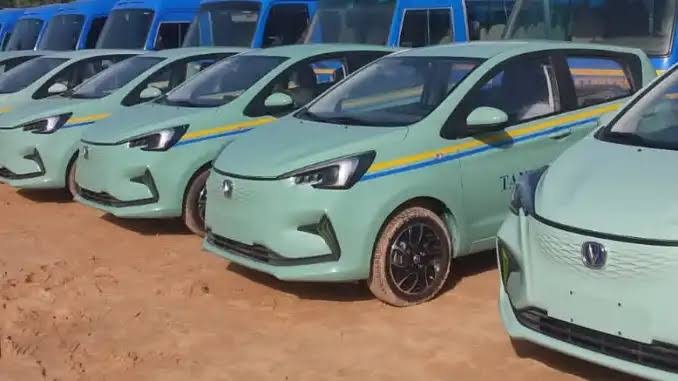The Chairman of Ikoyi Obalende Local Council Development Area (LCDA) in Lagos State, Fuad Atanda-Lawal, has announced plans to roll out 200 electric mini-cabs as part of the council’s empowerment program for 2024.
This initiative, disclosed during a press briefing at the council secretariat, is slated to unfold in two phases by the end of the first quarter of 2024.
The introduction of seven-seater mini-electric cabs serves a dual purpose — mitigating the impact of fuel subsidy removal and addressing the surge in transportation costs.
Atanda-Lawal outlined the comprehensive plan for the local government in 2024, encompassing education, infrastructure, healthcare, and transportation.
What he said
- “We are bringing in our electric vehicles from February. By the first quarter of this year, we will be empowering our people and we are not stopping there. “
- We will also establish 10 charging stations. This year, we will be empowering members of our community to drive the vehicles on hired purchase,” he said.
What you should know
- Despite the common perception that local governments may not be directly involved in transportation, Atanda-Lawal emphasized their significant role in the economic and business fabric of the nation.
- Aligning with the Federal Government’s commitment to cleaner and safer energy, the council identified the need to transition to more efficient and sustainable solutions.
- The upcoming fleet of electric vehicles, scheduled for delivery in February, is poised to offer subsidized transportation within Ikoyi-Obalende and its environs.
- Furthermore, the council plans to establish ten charging stations within the community to facilitate vehicle maintenance.
Atanda-Lawal, acknowledging the importance of addressing transportation costs, expressed the council’s commitment to empowering the community.
The electric vehicles will be deployed in a hire-purchase arrangement, providing members of the community with an opportunity to earn a livelihood and contribute to the local economy.
The Chairman emphasized the long-term nature of their interventions, moving beyond short-term palliatives to create sustained impact.
In addition to the transportation initiative, Lawal highlighted the council’s commitment to supporting the elderly and retirees through a food bank program.
This comprehensive approach highlights the council’s overarching goal of prioritizing the welfare of the community members.

